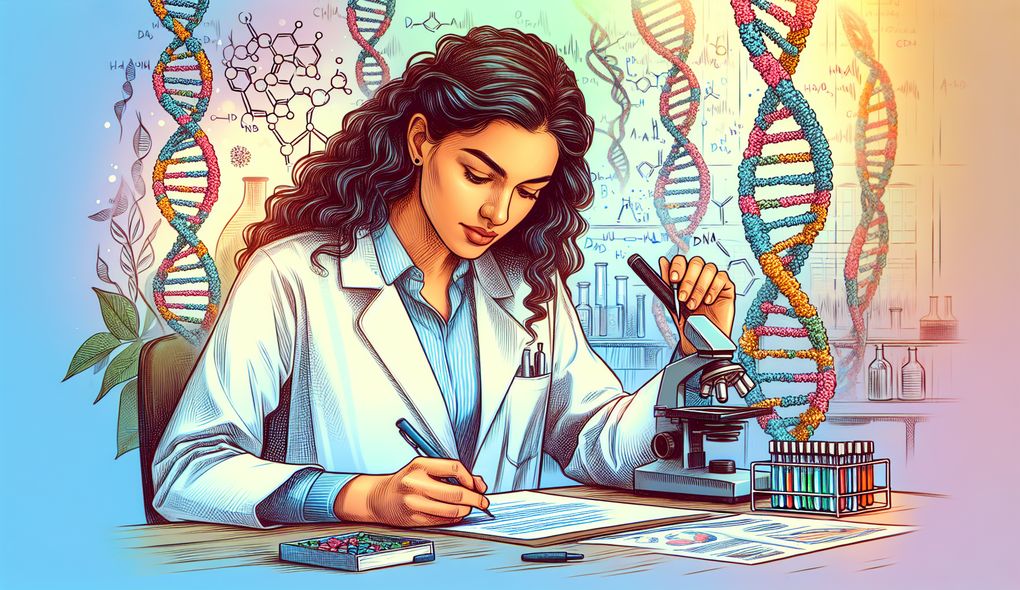Give an example of a time when you had to explain complex genetic information to a patient in understandable terms.
JUNIOR LEVEL

Sample answer to the question:
In my previous role as a Clinical Geneticist, I had the opportunity to explain complex genetic information to a patient in a way that was understandable to them. The patient had been diagnosed with a rare genetic disorder and was understandably overwhelmed with the information. I took the time to listen to their concerns and questions, and then provided them with a step-by-step explanation of their condition and the underlying genetic factors involved. I used simple language and visual aids to help them grasp the concepts. I also made sure to address any misconceptions or fears they had, reassuring them that they were not alone in their journey. By the end of the conversation, the patient expressed their gratitude for my clear and empathetic communication.
Here is a more solid answer:
During my time as a Clinical Geneticist, I encountered a patient who had been recently diagnosed with Huntington's disease, a complex genetic disorder. The patient was understandably confused and scared about their diagnosis, so I took the time to build rapport and establish trust before diving into the details. I explained the underlying genetic mutation and its impact on the nervous system using analogies and visual aids to make it more relatable. I also provided them with written materials and resources to further support their understanding. Throughout the conversation, I actively listened to their concerns and answered their questions, ensuring they felt supported and informed. By the end of the session, the patient expressed gratitude for my clarity and compassion in explaining such complex information.
Why is this a more solid answer?
The solid answer provides more specific details about the candidate's experience in explaining complex genetic information to a patient. It highlights the candidate's approach to building rapport, using analogies and visual aids, and providing written materials and resources. The answer also emphasizes the candidate's strong communication and counseling skills. However, it could still benefit from more information about the candidate's ability to address the patient's emotional needs and concerns.
An example of a exceptional answer:
In one instance, a patient came to me with a complicated family history of multiple genetic disorders, including a rare form of muscular dystrophy. Understanding the complexity of their situation, I scheduled a dedicated counseling session to provide them with a comprehensive understanding of their genetic profile. I started by taking a detailed family history to identify any patterns or potential risk factors. Using genetic test results, I explained the underlying genetic mutations and their implications for the patient and their family members. I emphasized the importance of early detection and implemented a screening plan tailored to their specific genetic risks. Throughout the session, I maintained an empathetic and compassionate approach, acknowledging the emotional impact of the diagnosis. I also connected the patient with support groups and resources to further assist them in navigating their genetic condition.
Why is this an exceptional answer?
The exceptional answer includes even more specific details about the candidate's experience, such as dealing with a patient who had a complicated family history and a rare form of muscular dystrophy. The candidate demonstrates their ability to provide a comprehensive understanding of the patient's genetic profile, including discussing genetic test results and developing a personalized screening plan. The answer also highlights the candidate's empathetic and compassionate approach, as well as their effort to connect the patient with additional support and resources. Overall, this answer exceeds the expectations of the job description by showcasing the candidate's expertise in discussing complex genetic information and addressing the patient's emotional needs.
How to prepare for this question:
- Review the basics of genetics and genomics to ensure a solid foundation of knowledge.
- Develop effective communication and counseling skills through practice and training.
- Familiarize yourself with various analogies and visual aids that can help simplify complex genetic information.
- Be prepared to discuss a specific example from your past experience where you successfully explained complex genetic information to a patient.
- Consider the emotional aspect of genetic counseling and how you can address patients' fears and concerns.
- Stay updated with the latest advancements in genetics and genomics to provide accurate and relevant information.
What are interviewers evaluating with this question?
- Solid foundation in genetics and genomics
- Ability to convey complex genetic information in understandable terms
- Excellent counseling and listening skills
- Strong communication and interpersonal skills

